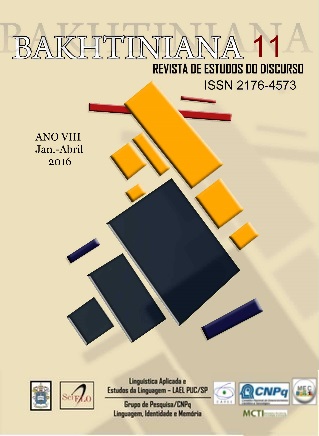Bakhtin Against the Darwinists and Cognitivists
Palabras clave:
Cognitive Science, Stephen Pinker, Bodies, Idealism, Alien DiscourseResumen
This article begins with a critique of the language theory of cognitive scientists such as Stephen Pinker (The Language Instinct), who describe in grammatical terms the complexity of human language. Their account of the pragmatics of language, however, is too simplistic, with Pinker seen as an idealist, in part because he imagines the context of speech only as shared information, neglecting the complexity represented by the conditions of utterance and seeing language as data to be processed between two bodiless computing machines. Bakhtin’s different positions on language are then examined. For him, people speak with their bodies, not only their brains. Bakhtin, unlike Pinker or Saussure, did not believe that we have dictionaries in our heads, which we consult at will. For Bakhtin, the experience of language consists not of a series of positions taken, but a series of failed attempts to find a position, because there is no position available in which to respond to the demands made on us. In underlining the alienness of discourse and language, Bakhtin is a realist and provides a useful counterpoint to the idealistic and naïve positions held by some cognitive scientists.
Métricas
Descargas
Publicado
Cómo citar
Número
Sección
Licencia
Los autores le conceden a la revista todos los derechos autorales referentes a los trabajos publicados. Los conceptos emitidos en los artículos firmados son de absoluta y exclusiva responsabilidad de sus autores.








